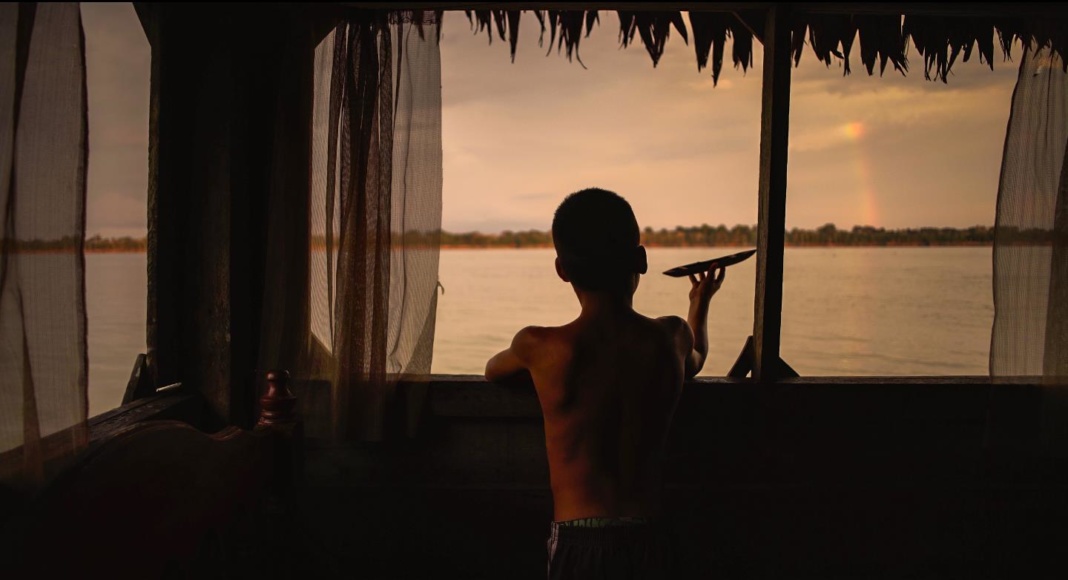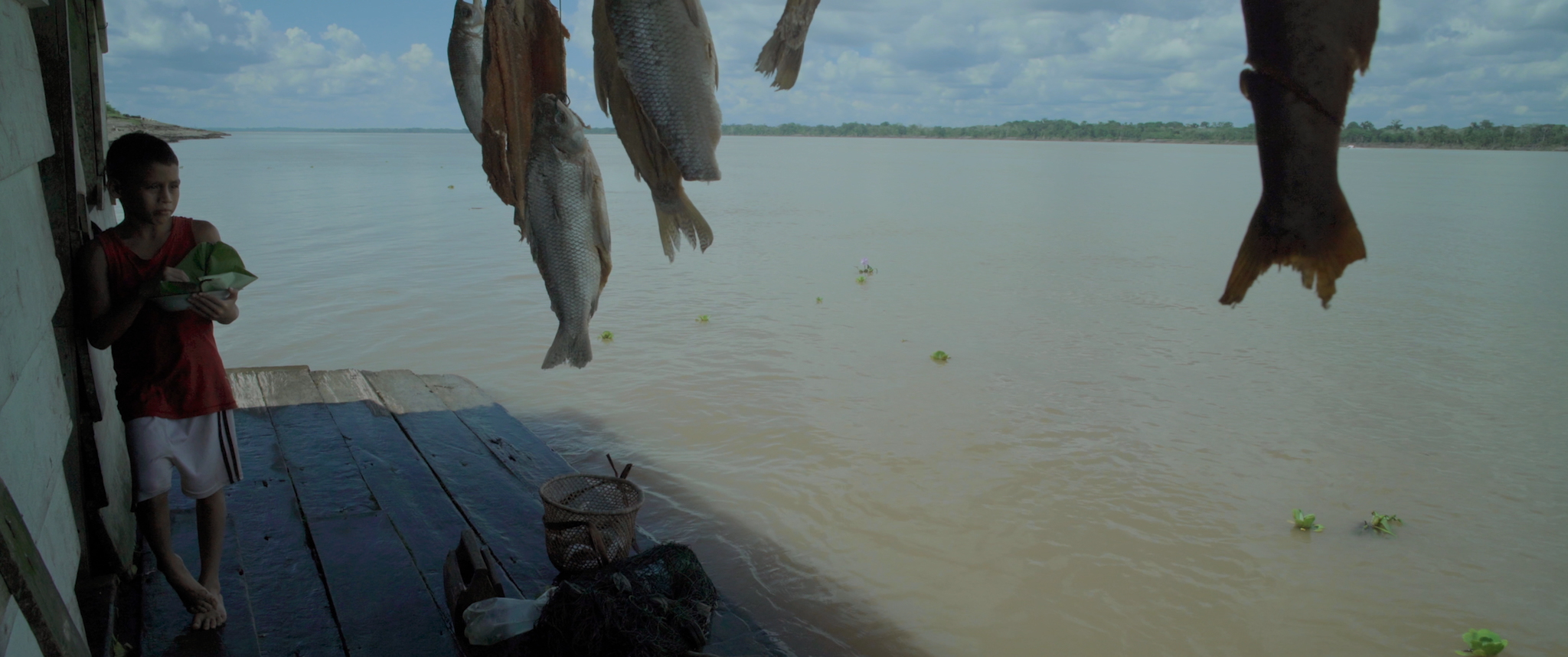The short film El Silencio del Rio, ‘The Silence of the River’, by Peruvian director Francesca Canepa, won the Grand Jury Award at the Oscar-qualifying Calgary International Film Festival and is currently longlisted in the Best Short Film category for the 2021 Academy Awards. Mathilde Aupetit considers the film’s blurring of dream and reality in order to present an Amazonian perspective, and its representation of the narrative power of nature.
Oneiric short film El Silencio del Rio follows a fisherman and his young son, who live in a floating house on the banks of the Amazon River. In just 14 minutes of footage, Canepa presents a story wrapped in magical realism, exploring the paths that lead to maturity, discovery, and identity construction.
The film opens with a sweeping view of the Amazon rainforest under a cloak of darkness, accentuating the sound of birdsong, nocturnal animals and water. A voice announces ‘Dreams must not be retold’, while a child sleeps peacefully in a hammock. These prophetic words plunge the spectator into the heart of the film, storytelling itself, within an indigenous Amazonian cosmovision in which dream and reality constantly mingle and confront one another.
Juan’s father appears to have lost his soul; he sleeps through the day and ‘lives at night’. So in order to find the dreamworld his father inhabits at night in his canoe, Juan wishes to cross the Amazon River, but he fears the unknown, the night and its secrets.
The river is their link between dream and reality and is the border the father crosses to rediscover his traditions and reconnect with his indigenous worldview. Crossing the river appears as a rite of passage both for the young boy, and for the spectator, who delves into the indigenous imaginary as soon as the boy decides to embark.
Interestingly, El Silencio del Rio is not defined by dialogue, but by gestures, noises and movements from the environment in which the characters evolve. Francesca Canepa borrows symbolism and mythical characters from the jungle, and frames them within the perspective of the young boy and his dreams. The landscape becomes an ally to the protagonist as it is the omnipresent witness and expresses the silent beliefs the boy searches for.
In this story and in Juan’s life, humans are not the storytellers as he initially imagines; in fact nature is. Through incorporating silence, Canepa allows the viewer to perceive the harmony between a community and the nature which envelops it. Nature is personified as the principal storyteller of indigenous tales, and the film thus advocates its authority.
The film seeks to inform viewers about vulnerable communities and the quest of indigenous youth searching for an identity reflecting their ancestral traditions within a globalised world. Canepa informs artistically and sensitively, telling a story within the framework of this indigenous community’s worldview. Through doing so, she respects the traditions she presents and echoes a cry for viewers to tune into the truths nature narrates.
El Silencio del Rio is longlisted in the Best Short Film category for the 2021 Oscars. Francesca Canepa’s film Aya, about the harsh tension between the daily struggle of a young Peruvian boy and the capitalist Peru unattainable to him, is available to watch online on Vimeo.




